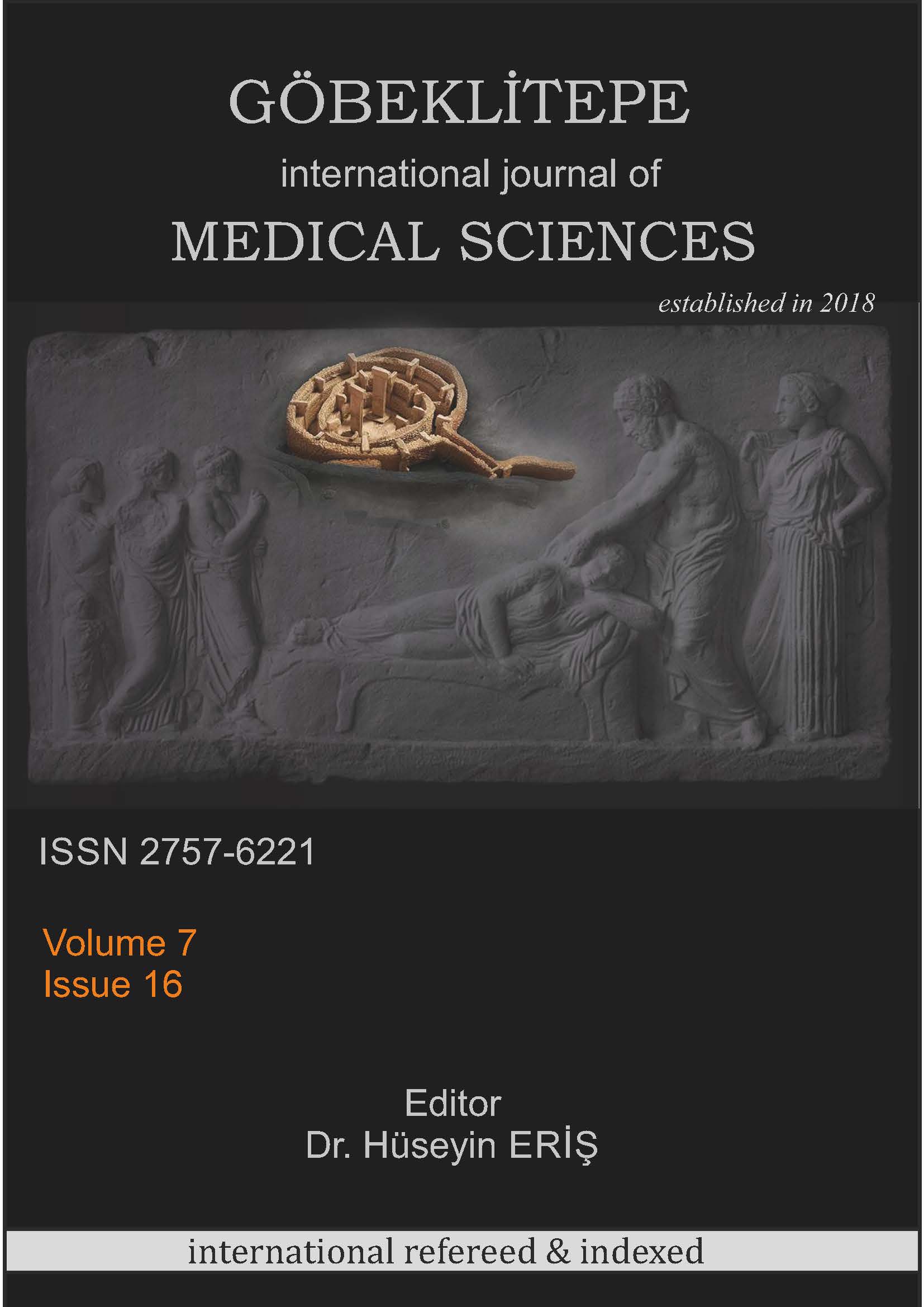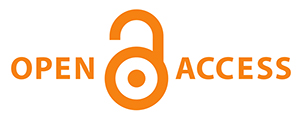RATIONAL DRUG USE OF FACULTY MEMBERS WORKING AT A UNIVERSITY IN EASTERN TURKEY
DOI:
https://doi.org/10.55433/gsbd/144Keywords:
Rational Drug Use, University, Academician, Level of Knowledge.Abstract
The present study was conducted to determine the level of knowledge about rational drug use among the faculty members working at a university in the Eastern Anatolia region. The universe of the research consisted of faculty members at the central campus of a university in the Eastern Anatolia region, and 301 individuals participated in the research. A questionnaire form prepared by the researchers in line with the literature was used as a data collection tool. In the questionnaire, there are questions (32 items) that determine the socio-demographic characteristics of the participants and their level of knowledge about Rational Drug Use. In the statistical evaluations, number and percentage values and rank averages were given. Chi-square test was used in the research. Statistical significance level was taken as p<0.05. In the study, age range (χ2 = 7.928 p = 0.094), gender (χ2 = 3.110 p = 0.078), marital status (χ2 = 1.039 p = 0.308), academic title (χ2 = 3.734 p = 0.443), chronic disease status (χ2 = 2.170 p = 0.141) did not make a difference in terms of over-the-counter drug habit. It has been seen that the knowledge level about rational drug use of the faculty members working at a public university is not at the desired level and there are some deficiencies. It is essential to increase the rate of participation in in-service trainings and courses on rational drug use in order to raise awareness of the Rational Drug Use in all academicians working in both health-related and non-health-related fields.
References
Kayaalp SO. Akılcı Tedavi Yönünden Tıbbi Farmakoloji. Editör: Kayaalp SO. 13. Baskı. Ankara: Pelikan Yayıncılık. 2012;140-54.
World Health Organization. The Rational Use of Drugs : Report of the Conference of Experts, Nairobi, 25-29 November 1985. World Health Organization; 1987.
Ulusoy HB, Sumak T, Sahin S, Gültekin H. Kayseri'de pratisyen hekimlere verilen groningen modeli akılcı ilaç kullanımı eğitiminin değerlendirilmesi. Erciyes Tıp Dergisi 2011;33(4):309-16.
Kayaalp SO. Farmakolojiye Giris, Rasyonel Tedavi Yönünden Tıbbi Farmakoloji (Ed S. O. Kayaalp). 10. Baskı. Ankara: Hacettepe-Tas Kitapçılık Ltd. Sti.; 2002.
Peköz Ö. Araştırma Görevlilerinin Akılcı İlaç Kullanımına Yönelik Tutum ve Davranışları. Uzmanlık Tezi. İzmir Katip Çelebi Üniversitesi. İzmir; 2018.
Yağar F, Soysal A. Akılcı ilaç kullanımı ile ilgili hastane uygulamalarının değerlendirilmesi: Asistan hekimler örneği. IJMEB 2018;14(1):81-96.
Kutsal YG. Yaşlanan dünya ve yaşlanan insan. Birinci Basamak İçin Temel Geriatri. Ankara: Algı Tanıtım; 2012.
Özen B, Erten Z, Bülbül T. Kuşaklar Arası Akılcı İlaç Kullanımı. Sağlık Bilimleri Dergisi 2018;27(3):199-204. https://dergipark.org.tr/tr/pub/eujhs/issue/42158/507558.
Pınar N. Adana İlindeki İnsanların İlaç Kullanım Alışkanlıkları. Çukurova Üniversitesi Tıp Fakültesi Tıbbi Farmakoloji Anabilim Dalı, Uzmanlık Tezi, Adana, 2010.
Uysal B, Kurutçu Ş, Ekici AM. Erişkinlerdeki Akılcı İlaç Kullanım Bilgi Düzeyinin Ölçülmesi, Journal of Social And Humanities Sciences Research, 2019; 6(32):179-189.
Özçelikay G. Akılcı İlaç Kullanımı Üzerinde Bir Pilot Çalışma, Ankara Ecz. Fak. Dergisi 2001:30(2) 9-18.
Uğrak U, Teke A, Cihangiroğlu N, Uzuntarla Y. Kardiyoloji Kliniğinde Yatan Hastaların Akılcı İlaç Kullanımı Konusundaki Tutumları. TAF Prev Med Bull. 2015;14(2):137-144.
Yapıcı G, Balıkçı S, Uğur Ö. Birinci Basamak Sağlık Kuruluşuna Başvuranların İlaç Kullanımı Konusundaki Tutum Ve Davranışları. Dicle Tıp Dergisi. 2011; 38 (4): 458-465.
Yavuz Emik K. İstanbul’da bir aile sağlığı merkezine başvuranlarda akılcı ilaç kullanımının değerlendirilmesi (Tıpta Uzmanlık Tezi). İstanbul: İstanbul Üniversitesi; 2018.
Nayir T, Okyay RA, Yesilyurt H, Akbaba M, Nazlıcan E, Acık Y, et al. Assessment of rational use of drugs and self-medication in Turkey: A pilot study from Elazıg and its suburbs. Pak. J. Pharm. Sci 2016;29(4):1429-1435.
Özdinc Ş, Şensoy N, Kurt R, Altas S, Altun R.Are we using drugs rationally? A survey study from Turkey. Pak J Med Sci 2015;31(5):1156-1161.
Karataş Y, Dinler B, Erdoğdu T, Ertuğ P, Seydaoğlu G. Evaluation of drug use attitudes of patient and its relatives attending to Çukurova University Medical Faculty Balcalı Hospital. Journal of Cukurova University Faculty of Medicine 2012; 37(1): 1-8.
Garrido PC, Garcia RJ, Barrera VH, Miguel AGM. Predictive factors of self-medicated drug use among the Spanish adult population.Pharmacoepidemiology and Drug Safety, 2008;17(2):193–199https://doi.org/10.1002/pds.1455.
Deniz S. Akılcı ilaç kullanımına ilişkin tutum ve davranışların belirlenmesine yönelik bir araştırma. Hacettepe Sağlık İdaresi Dergisi, 2019; 22(3): 619-632.
Tesfamariam S, Anand IS, Kaleab G, Berhane S, Woldai B, Habte E, et al. Self-medication with over the counter drugs, prevalence of risky practice and its associated factors in pharmacy outlets of Asmara, Eritrea. BMC Public Health 2019;19(1),159. https://doi.org/10.1186/s12889-019-6470-5.
Downloads
Published
Versions
- 2024-07-01 (4)
- 2023-03-29 (3)
- 2023-03-27 (2)
- 2023-03-27 (1)
How to Cite
Issue
Section
License
Copyright (c) 2023 Göbeklitepe Sağlık Bilimleri Dergisi

This work is licensed under a Creative Commons Attribution 4.0 International License.




